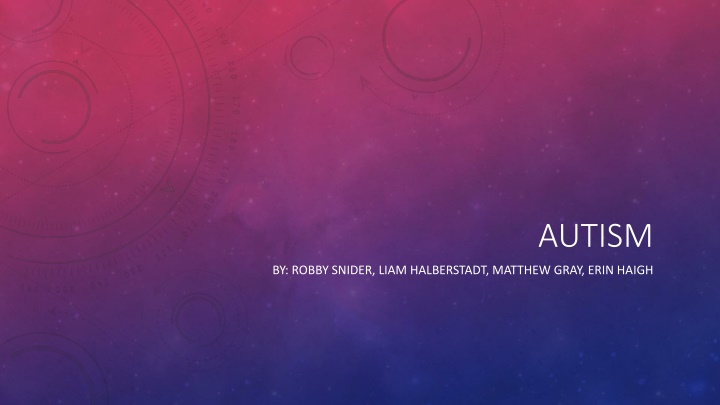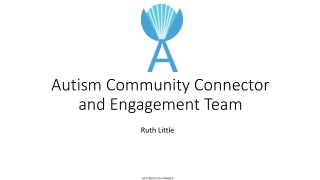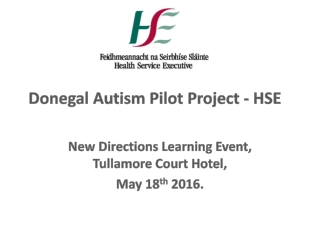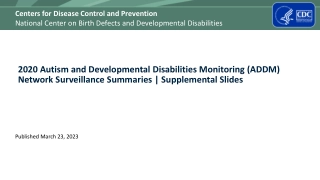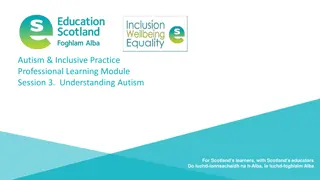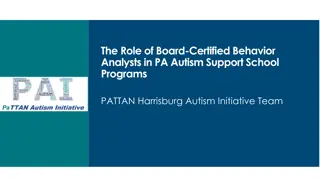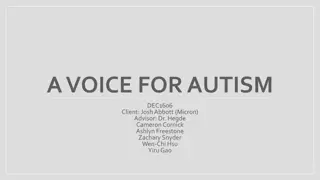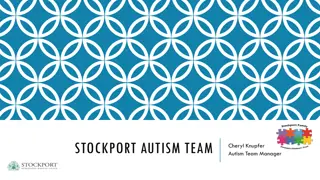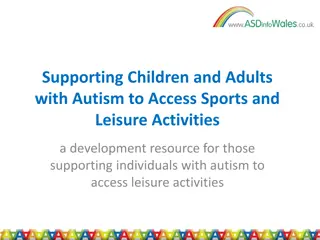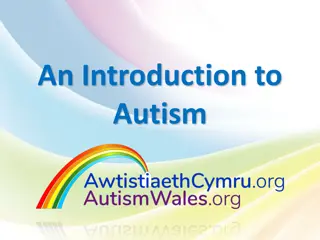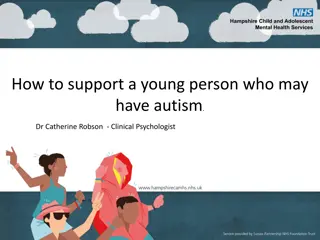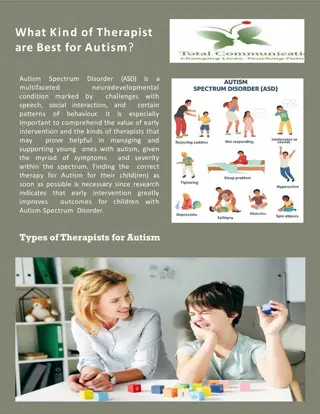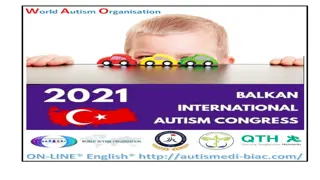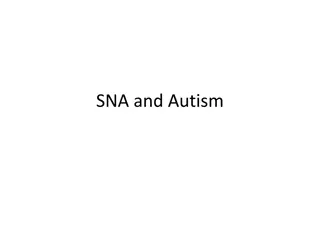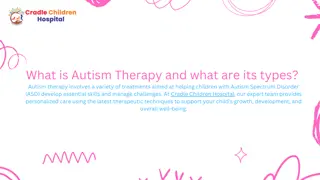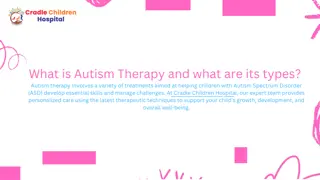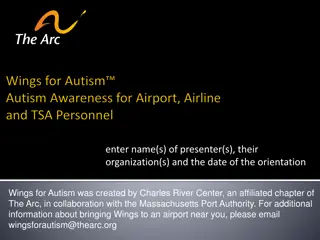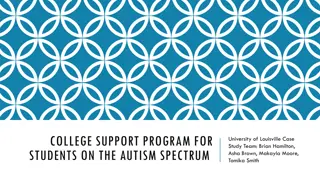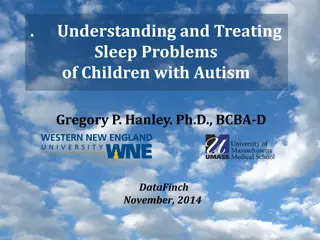AUTISM
Autism, also known as Autism Spectrum Disorder (ASD), is a genetic disorder affecting chromosome 15. It manifests in challenges with social interaction, communication disruptions, and repetitive behaviors. Diagnosis includes deficits in social communication and repetitive patterns of behavior. While autism does not affect lifespan, individuals may face rejection and financial impacts. This neurodevelopmental condition influences individuals' way of thinking and can impact families and social dynamics.
Download Presentation

Please find below an Image/Link to download the presentation.
The content on the website is provided AS IS for your information and personal use only. It may not be sold, licensed, or shared on other websites without obtaining consent from the author.If you encounter any issues during the download, it is possible that the publisher has removed the file from their server.
You are allowed to download the files provided on this website for personal or commercial use, subject to the condition that they are used lawfully. All files are the property of their respective owners.
The content on the website is provided AS IS for your information and personal use only. It may not be sold, licensed, or shared on other websites without obtaining consent from the author.
E N D
Presentation Transcript
AUTISM BY: ROBBY SNIDER, LIAM HALBERSTADT, MATTHEW GRAY, ERIN HAIGH
AUTISM AKA autism spectrum disorder (ASD), Kanner autism, pervasive developmental disorder (PDD), or high- functioning autism(HFA) Autism comes from the Greek word "autos," meaning self because of the social struggles In 1943 Leo Kanner discovered autism in America. He did tests on several children who didn t fit in and determined through the fact the didn t follow normal social behaviors
TYPE OF GENETIC DISORDER AND HOW ITS RECEIVED Autism affects chromosome 15 when it has to many or to few genes Autism normally is spontaneous and is not inherited from parents
WHAT IT LOOKS LIKE EXPLAINED BY A PEDIGREE CHART Spontaneously infected
SYMPTOMS OF AUTISM Different levels of social interaction difficulty Verbal and non-verbal communication disruptions Repetitive behaviors
EFFECTS OF AUTISM There is only one main effect of autism and it is when someone cannot communicate as well or have as good of an understanding of a social topic as an average person
DIAGNOSIS Persistent deficits in social communication and social interaction across multiple contexts in recent or present times Restricted, repetitive patterns of behavior, interests, or activities in recent or present times
PROGNOSIS The disease autism doesn t affect a persons lifespan They may be rejected from social groups or jobs Having autism can have a big impact on a person mostly through there way of thinking but some autistic people are actually better at academics than the average person This can affect families because sometimes people wouldn t want to be friends with that family just because one person they would have to be around Autistic kids usually cost more money yearly because of the treatments
MEDICATION Though there is not yet a way to treat autism there is medication to make it less noticeable like Behavioral therapy- using rewards to help kids learn all kinds of skills Educational interventions- school-based help with academic subjects Speech therapy- helping kids talk and understand words Occupational therapy- helping kids with things like balance, coordination, and handwriting Medication- for problems with things like attention, hyperactivity, and sleep
FOUNDATION FOR AUTISM One organization is Autism Society . It is a foundation that allows people to donate to help find a cure. It also has lots of information about autism. Another thing that it does is provide learning programs and a way for people with autism to socialize so they don t feel left out.
INTERVIEW WITH A MOM WITH AN AUTISTIC SON In the interview they asked the mother about the complications of having an autistic son. She talked about how they can t do family activities without a helper and they have to have the house setup differently so he won t destroy things. They have to try to stick to a schedule or the son may become angered and throw a tantrum. She also explains how the whole family has learned to be much more patient. His siblings can t usually have friends over because of his temper.
RESOURCES http://www.autismspeaks.org/what-what/facts-about-autism Chien-Kuang Ding guest lecture https://www.sharecare.com/video/health-topics-a-z/autism/why-do-more-boys-than-girls-have-autism Science notebook http://www.autism-resources.com/autismfaq-hist.html http://www.autism-society.org/
